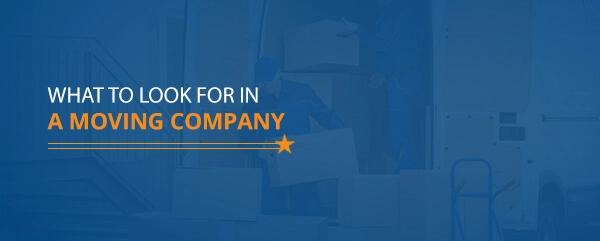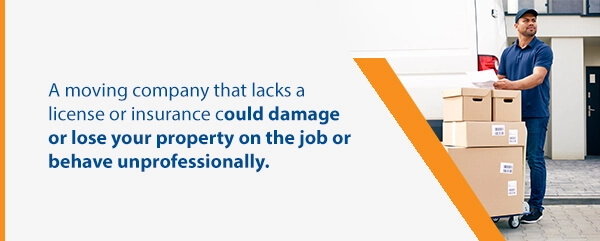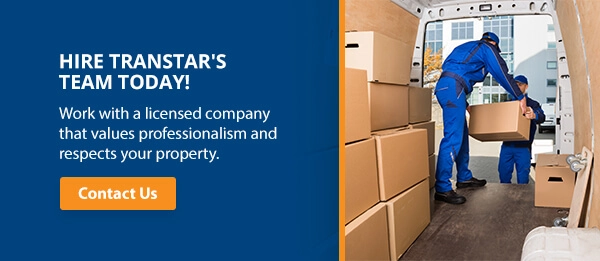
When you’re planning on hiring a moving company, it’s important to figure out when you will be available and get the right supplies. Follow this guide on how to choose a moving company to find reliable help for your next move.
When you hire a mover, you entrust them with your family’s possessions. Be sure you’re choosing someone worthy of that trust rather than a rogue operator.
A rogue operator is any person or entity that passes as a legitimate moving company while lacking the appropriate qualifications, equipment, insurance and registration. They tend to advertise extremely cheap rates and may have very attractive and professional-looking websites with fake reviews and sometimes even a revoked federal license number.
One of the most popular moving scams is to offer a low quote and then claim extra charges once the truck is loaded. It’s important to familiarize yourself with the signs of a moving scam so that you can avoid them. Protect yourself by taking these steps:
The New Jersey Division of Consumer Affairs is responsible for ensuring your moving company conducts good business practices. They regulate movers by monitoring operations and penalizing any who violate NJ public movers regulations. Without licensing, a company’s methods could be unethical and the owners could be more concerned with making money quickly than doing good work.
Movers in New Jersey must:
Hiring unlicensed movers can be a costly gamble. When you hire movers who aren’t licensed to work in your state, you risk:
Knowing how to hire a moving company that’s honest, hardworking and dependable can make your move a much more pleasant experience. We’ve compiled these tips for hiring movers to help.
A moving company with a good reputation will have positive reviews in multiple online locations. New businesses and businesses with years of experience should have a good reputation and a history of success.
You may even have friends or family who have worked with them before. If you’re unsure how to select a moving company with a good track record, try talking to people you know in your local community.
Pay attention to what the reviewers say about things like showing up to appointments on time, presenting a fair rate and keeping track of your possessions on moving day.

A moving company that lacks a license or insurance could damage or lose your property on the job or behave unprofessionally.
As for what to look for in a long-distance moving company, the FMCSA Moving Checklist says that your mover needs a U.S. Department of Transportation registration and a USDOT number if your move involves interstate travel. Without this registration, movers can only legally transport your items across town.
Each state has slightly different regulations with additional licensing requirements.
Once you contact a moving company, they should give you a rate based on the team labor and hours required. This base rate may exclude fees for extra packing materials or to move heavy objects. Rather than a set estimate, a moving company will typically provide a general range for how much you could spend for the service.
The question of how to hire movers is often a matter of finding the most realistically affordable price. Make sure you ask about additional fees that could come up during the move. The company should be willing to provide this information as part of a pricing transparency policy.
You want to find movers equipped to work with your possessions and able to transport the items into and out of certain environments. For example, if you own a piano, make sure you work with movers who can safely transport the instrument, especially if you are moving it up and down flights of stairs.
Develop questions for the movers based on your needs. For example:
When you work with a moving company, they should make sure you understand all the details of the move. Be sure to ask questions if you’re unsure about something as you go over the following documentation:

Work with a licensed company that values professionalism and respects your property. Contact Transtar Moving Systems to get started or get a quote online.